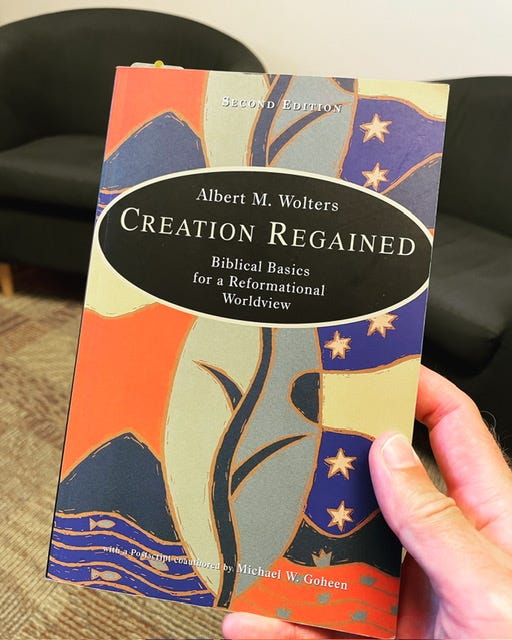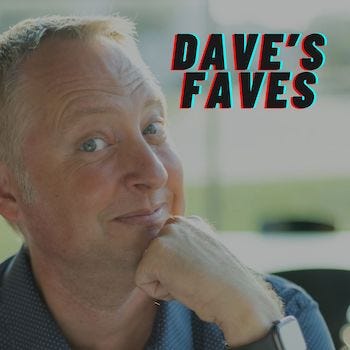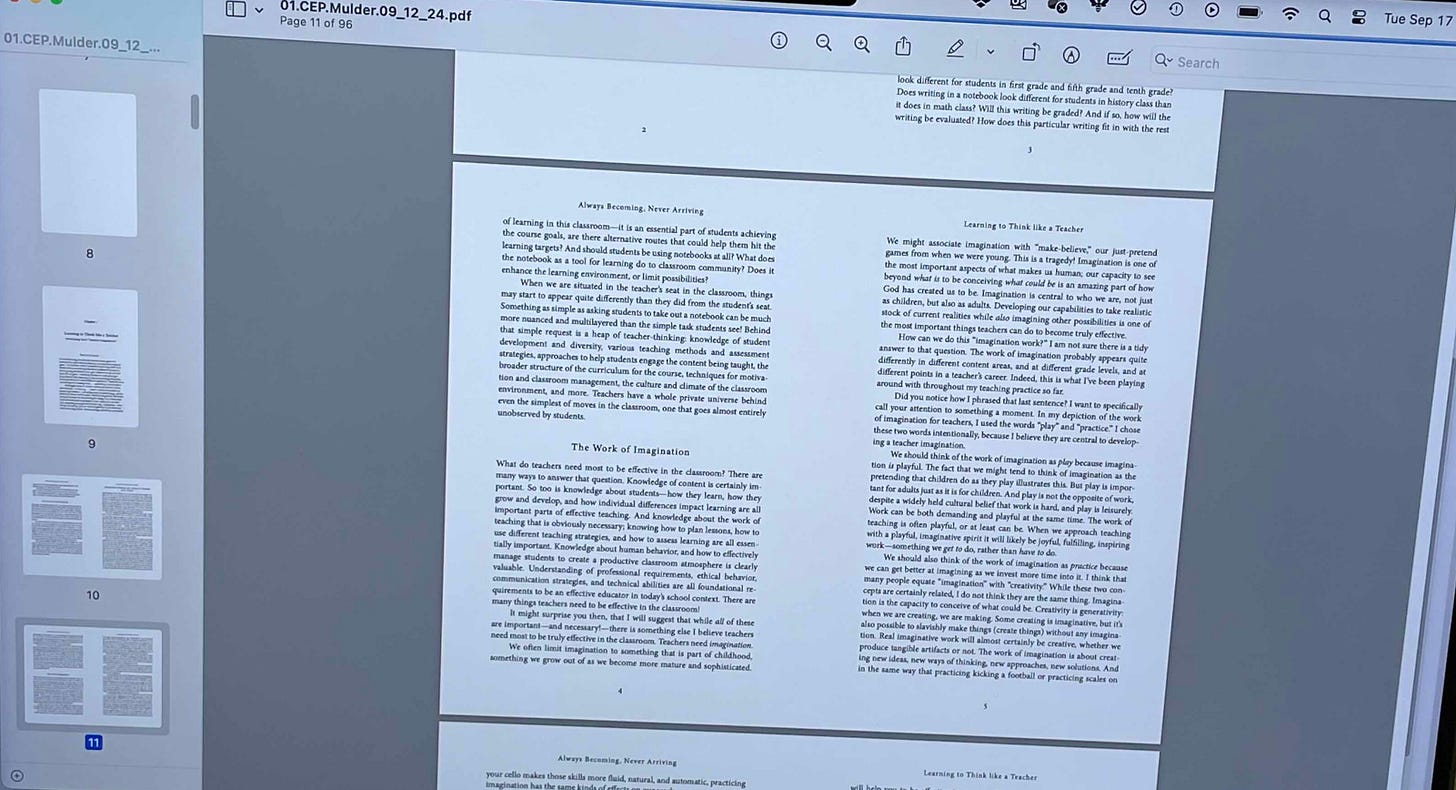Productive Tangents
Sometimes I get derailed in class...and sometimes that's better than the plan
Okay, so I’ve never been diagnosed with ADHD, and I know the dangers of self-diagnosis. And it may very well be that I do not have ADHD, but there are times where my brain ping-pongs so rapidly between multiple ideas that I wonder. Sometimes I get so engrossed in something that I become a little time blind. And other times, I can hardly slow down enough to focus on the one thing I need to pay attention to. One place this plays out is when I’m telling a story. My incredibly patient wife has kindly pointed out to me that it can be immensely frustrating listening to me tell a story, because sometimes I get absolutely lost in the details. And other times, there are so. many. rabbit. trails. (Not always, of course…but sometimes…) I just have so many ideas, you know? And I want to share them all.
Why do I tell you this now?
Well, when this ping-ponging of my attention happens in class, it often results in me running down a tangent. Sometimes it’s just barely related to the topic of the day, and then it is (I hope) a delightful, short diversion for students that helps them get to know something of me beyond just being their instructor. If it’s more squarely connected to the topic of the day, these tangents can actually become quite productive—a real benefit for learning, even.
I recently had one of those tangent moments that I first thought was going to be one of those less-connected rambles…but it may have ended up being a productive tangent.
It happened in the Core Capstone course that I am privileged to teach: Technology, Identity, and Community. The course is really about discipleship in a “how then shall we live?” kind of way, and as a lens to focus our inquiry in the course, we are considering digital technology, and what it is doing to the way we think about human beings—both as individuals (that’s the “identity” part) as well as societally (that’s the “community” part.)
We are still relatively early in the course, and to help build a foundation, we are reading and discussing Al Wolters’ excellent little book, Creation Regained: Biblical Basics for a Reformational Worldview. The book lays out the contours of the metanarrative that runs through scripture: the storyline of Creation, Fall, Redemption, Restoration. And it was in the context of our discussion of “Redemption” that the tangent came into play.

I was in the midst of pointing out the idea that different Christians emphasize different aspects of what “redemption” really means. I frame it as, “Redemption means ‘Jesus came to save the day!’ But what was he coming to save?” I pointed out that more evangelical types of Christians tend to emphasize personal salvation, as in “Jesus came to save me from the debt of my sin.” And I suggested that this is absolutely true(!), but it is also not the only way to think about redemption. In the book, Wolters suggests that because the reach of sin is cosmic (universal) in scope—all things are twisted, and tarnished, and tainted by sin!—Christ’s redeeming work must be equally cosmic in scope. So while it certainly isn’t wrong to talk about salvation as a personal thing, from a Reformational approach, we might talk about Christ’s redeeming work as a “salvage operation” for the whole of Creation.
But here is where things got interesting: a thoughtful student raised her hand and said something like, “I grew up in a more Evangelical tradition, so I know what you mean about viewing redemption as personal salvation. But I also think of redemption as being about Jesus saving…everything! So, is it really all that different? Why do different Christians make such a big deal about these differences anyway?”
Oh. My.
It was a Magic Question! Just the kind that sparks my brain into ping-ponging around in different directions.
In a split second, I made the decision: I was going off the rails for what I had planned for my lesson of the day. Instead of the lecture I had prepared on the order of Creation, and the order of Sin and Redemption, and different ways Christians think about a sacred/secular divide, and role of creational structure and religious orientation in the way we make sense of the world…I gave an off-the-cuff history of the church.
For about 10 minutes, I sketched out a family tree of the Church—that we all share a root in Christ, which is what makes us all Christians. We talked about the early Church in the book of Acts (back when they weren’t even called “Christians” yet…just “the Way.”) We talked about how the Church was really just one entity until the Great Schism of 1054, which split the Church into the western (Roman Catholic) and eastern (Orthodox) branches of the family tree. We went down each of those branches a bit to see how different denominations and sects split off at various points. And eventually we ended up on a little twig called “Kuyperianism” off a branch called “Dutch Reformed,” off a larger branch called “Calvinism,” that is hanging off the “Protestant” limb of the family tree.
At one point, I heard a student say under his breath, “This all makes so much sense—why haven’t I learned this before?” I grinned, because I’m pretty sure he has learned this before, or at least had the opportunity to learn it in courses he took earlier in our Core program. But maybe he wasn’t ready to learn it until today?
At the end of my impromptu history lesson, I did a quick check for understanding, and re-emphasized that the point of all of this was to show that all Christians truly have a lot in common (rooted in Christ!), though we often tend to think that our little twig of the family tree is the most important, or even the most correct view of Jesus, of God, of Creation, of Redemption, of how to read scripture. (Maybe this is especially true of the little twig I find myself located on, that Kuyperian, Reformational twig? Ah, the triumphalistic tendencies…) :-/
But the students were SUPER engaged in this side-trip. They asked some good follow-up questions, and they were extremely dialed in to the whole thing, with lots of nodding along, strong eye contact, and a whole lot of scribbling out their own versions of my family tree in their notebooks.
It was a lot of fun for me, but gratifying too to see them thinking, making sense, and connecting their own experiences in the Church to what I was laying down for them in my history lesson.
It can feel dangerous to shoot from the hip that way, but I think it did pay off this time. And I should note that I did eventually come back to my intended lesson plan of the day, where I made a few executive decisions about what to continue to talk about in the time we had left, and what things I would save for an abbreviated consideration next time we meet up. But holding my plan loosely enough to capitalize on a magic question? Well, that’s where a productive tangent just might materialize.
Dave’s Faves
Here are four things I’m absolutely loving right now that I hope you might love too…
Dave’s Fave #1: “Wilderness in the Age of Climate Change”
I have a couple of podcasts that I listen to almost every day, and NPR’s Up First is one of these. Monday-Saturday, they have a short (10-15 minute) episode that recaps three important news items for that day—usually national news, international news, and a political story. But on Sundays, they have a longer episode that gives a deeper dive into more of a human interest story.
Recently, one of these Sunday episodes was entitled “Wilderness in the Age of Climate Change,” and as a former science teacher and current nature-lover, I found it engrossing. It is the story of the National Park Service, and the challenging decisions they have to make about how (and whether) to manage Wilderness areas that are being negatively affected by climate change. Specifically in this story the folks from NPR focus on the results of California wildfires on some Wilderness areas of Sequoia National Park, home of the largest trees in the word, the Giant Sequoia. Fire is a natural part of the trees’ reproductive cycle, with their seed cones only popping open when they are heated by natural wildfires. But…what happens when the wildfires might not just be naturally occurring, and if the changing climate is causing more frequent, larger, and more destructive fires that are actually destroying the whole trees—not just popping open their seed cones but burning them up completely? Should humans get involved in conserving these trees? Or does that change the meaning of “Wilderness” completely?
It’s a compelling story, and I invite you to listen in. You can find Up First in all the podcast apps, or listen to the story right here on the web: Wilderness in the Age of Climate Change.
Dave’s Fave #2: “Does God control us, or do our brains do that?”
Another podcast recommendation for you! I enjoy listening to The Holy Post podcast, and one of the regulars on that show, Kaitlyn Schiess, recently started a spin-off podcast of her own, called Curiously, Kaitlyn. Schiess is an accomplished writer and is currently pursuing a PhD at Duke Divinity School. But she is also actively involved in children’s ministry at her own church, using her gifts to serve the needs of a local congregation. (I love that so much!) This podcast sort of brings those two worlds together: she gets real questions from real kids that get at deep theological truths…and then she finds pastors and theologians that might be able to help answer those challenging questions.
My friend and colleague, Gayle Doornbos, was recently a guest on the show—a fun worlds-colliding moment for me. The question raised by a kid in Kaitlyn’s Sunday School class was a really good one: “Does God control us, or do our brains do that?” Gayle and Kaitlyn think through some of the theological implications of Providence, free will, human limits, God’s sovereignty, and how human agency and God’s agency are not mutually exclusive. Heady stuff(!), but explained with thoughtful clarity. And Gayle even reads from the Heidelberg Catechism—great stuff! You can find the show in your podcast app (just search for “Curiously, Kaitlyn”) or you can listen to the whole episode right here on the web: Does God control us, or do our brains do that?
Dave’s Fave #3: Influencing other people to wear Converse All-Stars
Many of you will be familiar with my love of Chuck Taylors—my go-to footwear for teaching! I wear them to church quite a bit as well, and I sometimes get comments from the kids.
A friend from church recently sent me a Facebook message that was a photo of her daughter with this note: “Korra got her first pair of ‘Converses,’ and said, ‘Now I’m like Tall Dave, just not tall…’” This made my day when she told me—and check out those Chucks! It’s a great look. (Thanks, Amy, for permission to share this story!)

Dave’s Fave #4: Precious Remedies Against Satan’s Devices
First off, I just love the title of this album by The Welcome Wagon. If you’ve never heard of The Welcome Wagon, think Sufjan Stevens, but more explicitly Christian. (The husband-wife duo that makes up the heart of the band pastor Stevens’s church, and he often plays in the band on their recordings.)
I particularly love track 3, “I Know That My Redeemer Lives” and track 12, “God Be With You Til We Meet Again,” but there is not a bad song on this album. Give ‘em a listen, and drop a comment to let me know what you think.
Book Update!
Exciting news, friends! I heard back from my editor this week, and I have actual typeset pages to proof. Amazing! This is really happening—it looks like a real book now. When will it be available?? I will keep you posted…
The Last Word!
I’m still thinking about productive tangents. How will we know if the tangent will be productive? It’s hard to see that all the way through from the beginning, but my encouragement to you is to take a playful approach to your teaching practice. As my friend Darryl De Boer suggests, “plan tight, and then hang loose.” Have a plan, and be ready for teaching! But hold that plan loosely enough that when a Magic Question pops up, you can let go of the plan—at least for a little while—to pursue a tangent. It just might be the most important part of your lesson.
Grace and peace to you, friends, in the adventure of teaching and learning!






